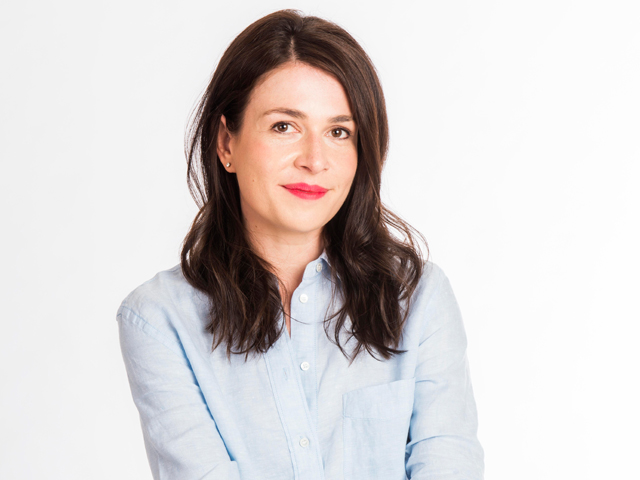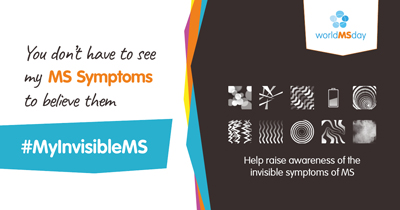Astrid Edwards World MS Day Interview

World MS Day 2019: Thursday 30 May
World MS Day 2019 on Thursday 30 May is an annual global day to raise awareness about multiple sclerosis (MS) and the needs of people living with the condition.
This year's theme, Visibility aims to both spotlight the invisible symptoms of MS (#MyInvisibleMS) and their unseen impact on quality of life; and increase the visibility of MS.
A key characteristic and point of difference of MS, invisible symptoms include pain, fatigue, visual problems, numbness/tingling, feeling hot and cold, brain fog (cognitive difficulties), depression, continence problems and balance issues/dizziness.
People with MS often hear, "but you look so well!" when in reality, they are experiencing severe invisible or hidden symptoms.
About MS:
Multiple sclerosis (MS) is a neurological condition affecting the central nervous system (brain and spinal cord).
It is the most common chronic neurological condition diagnosed in young adults.
Over 25,600 people throughout Australia live with MS (and more than 2.3 million worldwide).
MS is most commonly diagnosed between the ages of 20 and 40.
75% of people diagnosed are women.
The economic impact of MS on the Australian economy is close to $2 billion annually.
MS varies significantly from person to person. For some, it is a disease that comes and goes in severity with periods of unpredictable relapse and remission. For others it means a progressive decline over time. For all, it is life changing.
Symptoms vary between people and can come and go; they can include severe pain, walking difficulties, debilitating fatigue, partial
For more information, please see: https://www.msaustralia.org.au/stay-connected/world-ms-day-2019
 Interview with Astrid Edwards
Interview with Astrid Edwards
Astrid Edwards was diagnosed with MS in December 2013 after a rather dramatic first MS episode. As a way of understanding the disease, she started blogging about chronic disease and living with MS under the pseudonym LadywithMS. Telling stories – and saying what needs to be said – is her goal.
Astrid is a Director at Bad Producer Productions, and a teacher of professional writing at RMIT University, and Vice Chair of Writers Victoria. She is also writing her first novel.
https://astridedwards.com
Question: Can you talk us through your diagnosis with MS?
Astrid Edwards: I was diagnosed at 32. I woke up one Sunday morning with incredible pain in both my feet – they felt like they were on fire and had pins and needles at the same time. Over the course of a week it went up to my waist. I went to the GP twice in that time, and on the second I was sent to the ER Department at the nearest hospital. After a night in the hospital with tests ruling out other possibilities, I was booked in for an emergency MRI. Ten days later I was officially diagnosed with Multiple Sclerosis.
Question: What were the initial symptoms you experienced?
Astrid Edwards: They call it bilateral paraesthesia. Essentially, I was numb and experienced pins and needles (with MS, both are possible at the same time) from my feet all the way to my waist. I noticed those at the time, of course, but in retrospect I can see I was ill for months, experiencing extreme physical and mental fatigue.
Question: How does MS affect you on a daily basis, now?
Astrid Edwards: My symptoms are present every day, but they are invisible. They also change from day to day. Most often, I experience fatigue and neuropathic pain. But I also have troubles with balance, coordination, and proprioception (which is a strange one, meaning my awareness of where my limbs are in relation to my body). My eyesight is not affected, which is a little unusual, as impaired vision is very common for people with MS.
Question: How do you manage the symptoms of MS?
Astrid Edwards: I schedule rest days in advance. My career and relationships are important to me, so I work hard and play hard… but I always make sure I have a regular day free of everything. My body needs that rest, that break. I have learned the hard way if I don't rest regularly, I am more likely to have a relapse.
Question: What message do you hope to spread this World MS Day 2019?
Astrid Edwards: Invisible diseases matter! They are hard for people to understand, but they are experienced by many Australians every day.
Question: How difficult is it to overcome the challenges of an invisible condition?
Astrid Edwards: It varies. I am fortunate to have a supportive family and network of friends, as well as a supportive employer. But I also know what it is like to not have a supportive employer. The best advice is to not assume what someone can do or cannot do.
Question: What advice do you have for a woman recently diagnosed with MS?
Interview by Brooke Hunter
MORE



